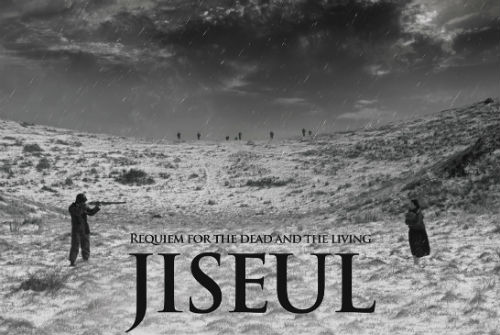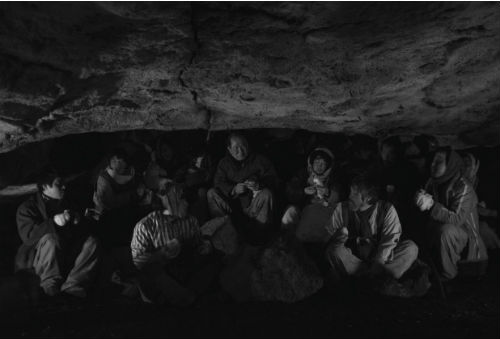영화 <지슬> 리뷰

April may be the cruelest month for Jeju islanders. This year marks the 68th anniversary of the Jeju April 3 incident. The incident occurred on April 3 in 1948. It resulted in the massacre of many people on the island by the soldiers who got the orders from the Korean government. At this time, the North-South Korea ideological conflict was intensified on the island. An armed rebellion of Namrodang (the Workers’ Party of South Korea) against the U.S.-supported Korean government made the U.S. army carry out the scorched earth policy to annihilate communists on the island. Eventually, more than 30,000 civilians were killed and about 4,000 residents escaped to Japan from the soldiers until by September 21, 1954.
O Muel’s film, “Jiseul” shows the historical tragedy of Jeju Island realistically. ‘Jiseul’ means potato, spoken in Jeju dialect. In the movie based on the Jeju April 3 Incident, you can see two groups. One group is soldiers who chase people to kill. The other is inculpable citizens who are hiding at the cave because they are falsely accused of being communists. Due to a martial order anyone who was regarded as a communist was shot on sight, most soldiers madly searched for communists to kill. On the one hand, some soldiers did not want to massacre civilians because they realized that the people who they killed were not communists but innocent people. Even in this cruel and extreme situation, people in a village including a pregnant woman and babies are able to escape to a cave. They share only potatoes with each other and have an everyday conversation in hopes of getting out of that situation. They already lost their houses, livestock and most of their families. But they talk to each other about their daily life with equanimity. These scenes made this reporter feel sad.

The April 3 was designated as a national memorial day in 2014. However, there are still some arguments about the Jeju April 3 incident, and Jeju islanders need more truth and reconciliation. One of the April 3 incident’s bereaved family members explained that “The country was going crazy and the people who were displeased with someone killed people at random, regardless of the South and North Korea conflict.” The April 3 incident reminds me of the May 18 Gwangju Democratic Movement. Similar to the April 3 incident, Gwangju citizens were sacrificed by the government’s forces in the democratic movement in 1980. The citizens of these two cities have severe trauma that others cannot know at all. This kind of national trauma should be recognized. Their traumas are something harsh hidden deep inside the ‘history’ of the country.
Like the movie’s sub-title “Unended Time and Tide”, the history may be going on while just its appearance changes. Thus, the April 3 and the May 18 should be remembered not as a simple occurrence, but as a symbol of peace and human rights. In addition, however hard your life may be, remember the ‘jiseul’ and the villagers in the movie. Jiseul represents ‘hope’ for those who held out for several days in the cave. You can grasp hope even if you are in the dark. We need to share hope and love with other people.
By Lee kyeong-ryun, Tribune Reporter
이경륜 기자
lkr10413@naver.com

